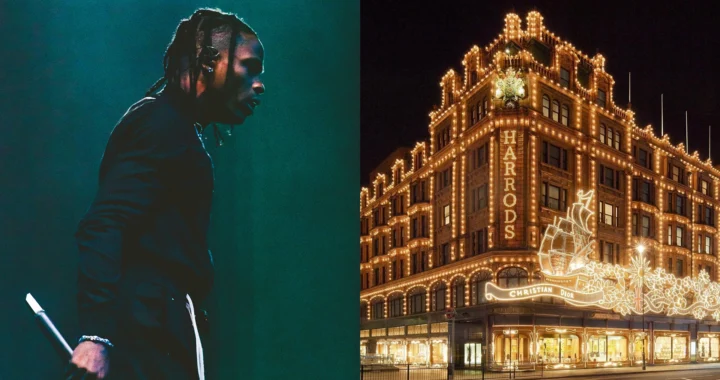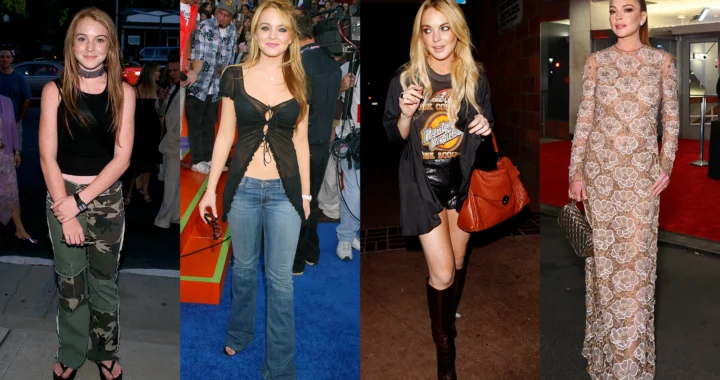The legendary Belgian image maker discusses his new feature length film, 'Heartlands', a dreamy and dark vision of growing up.
Kicking the clichés of youth culture to the curb, Willy Vanderperre is back with his latest portrayal of adolescence in a new, feature-length film, Heartlands. Sure, the word ‘youth’ remains nigh on impossible to pin down, but after more than 30 years of grappling with the enigmatic idea, the photographer and filmmaker has decided to embrace its indefinability.
“You don’t know what it is until you’ve actually lost it,” Willy says, calling from his studio in Antwerp. “[But] that’s also the beauty of it, and the sadness of it. It’s a troubled state of mind. It’s happy times, yes, but it’s very confusing.”
For an artist who has spent so much of his life perplexed by youth, he does a stellar job at translating it visually. From the earliest shoots with his art school buddies, Raf Simons and the stylist Olivier Rizzo, all the way to campaigns for Prada, Calvin Klein and Jil Sander, Willy renders youth with a softness matched only by the timbre of his voice. Despite his age, Willy also carries an air of youth, his voice squeaking with titillation as he unpacks the meaning. “You see, I get really excited when I talk about it,” he laughs.
The discussion is not mere navel gazing, though. Rather, it’s sparked by the orgiastic, brooding scenes of his new film. Combining over five years’ worth of work into a triptych of films, it’s described as “ode or poem to youth”. Tracing the thrills, throes and woes of young people as they enter yet another undefined stage of their lives — adulthood — the work departs from and features a re-cut version of his directorial debut, Naked Heartland, which played in 2016 at the ICA in London.
According to Willy, that vague bracket of time from your late teens to early twenties is when you change the most. It’s a point he makes clearer by casting a consistent set of actors — some of whom appeared in Naked Heartland (Line Pillet, Aäron Roggeman and Gilles Van Hecke) — throughout the saga. “When we started scouting people, the first one I think I was completely infatuated with was Gilles, the blonde guy,” Willy says. “I saw him in a short feature, a student film by somebody in Ghent, and I instantly thought he was the right guy.” Between the cast, a variety of personalities are portrayed, each one tapping into individual experiences like sexual violence, queer shame and the compromise of adult life.
A silent film until its final chapter, Willy’s subjects are on a journey through the drizzly flatlands of Flanders, placing us in grey schoolyards, thumping gabber raves and bedrooms that are both sanctuaries and prison cells for the suffocating, small town teens. Cut with intervals of furious masturbation and camcorder confessions, one character, played by Gilles Van Hecke, wrestles with his apparent homosexuality. “There’s no way I can tell my father,” he whispers, gazing into the lens as if we are the priest on the other side of a confessional box. Trivial, this is not: raised a practising Catholic, Willy attended mass every Sunday, a point of conflict for his queer identity and one of the inspirations behind this film.
At points, we are the bystander to brutal bullying, paranoid drug trips and even rape. Other moments are lighter, more freeing, such as when two of the aimless boys who at first reject one another, finally embrace as lovers in the final segment.
Before this can happen, though, the kids must complete every hindrance and roadblock involved in growing up. Until then, their only way to escape their troubles is through dancing, sex and mindless hedonism. Indeed, dancing is a perennial act Willy relies on to signal the shedding or processing of feelings among the group. “You can’t actually express what you want to express because you don’t have the voice yet. You can’t find the words,” he says. “So that’s why there’s so many means of expression — you know, dancing is a liberation.”
This poetic approach to filmmaking informs many of the motifs Willy uses. At one point, we watch as a girl has her hair hacked off with blunt scissors by her queer-questioning boyfriend. She then proceeds to torch her clothing. “The haircut, for me, is the first sexual experience, because it’s so dramatic,” Willy says. “It’s also the first time you lose somebody. It’s almost like the typical change, if you are going through something horrible in your life, instinct is to change your look dramatically.”
Such libidinal interpretations of what others might brush off as teen angst are refreshing. As Willy presents it to us, homosexuality might be better understood from a Foucauldian angle, whereby same-sex desire is not merely a desire to fuck, but also, a friendship and comfort in one another’s company. “We all explore it at one point or the other, where we are confused about what homosexuality is,” Willy says. “When you grow up, you fall in love with your best friend. It is the most natural thing in the world, whether you’re female, male, non-binary; the person that you’re closest with, you fall in love with.”
Of course, part of leaving youth behind, Willy suggests, is the formation of a self you can present and verbalise to others. For him, that transition happens around the age of 23, one that he allegorises in a dinner scene in the film. Sombre but calm, the friends dine together in mourning suits, bidding farewell to their debaucherous pasts and embracing their adult lives. Again, they dance as a means to release and set one another free.
It’s not all smiles entering adult life. As Willy sees it, that first step is our first grotesque experience. Marking this, the film takes a bacchanalian turn for its final scene: A regal king on his throne announces, “Fellatio for all”, while one girl screeches, “Straights lie, queers die.” Willy’s closing frames speak to his unending attachment to youth. Even when you think the creative polymath has put the topic to bed once and for all, it will keep clawing back. One line sticks out: “What hurts the most, silence or a lie?”







